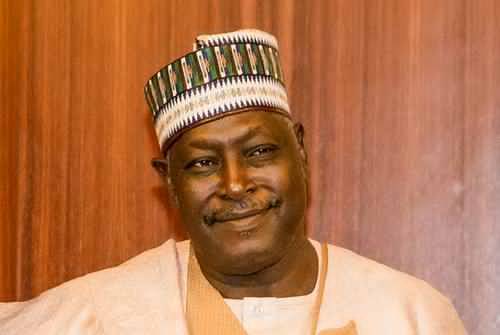
President Muhammadu Buhari finally ordered the sack of the Secretary to the Government of the Federation (SGF), Mr. Babachir Lawal, and the Director-General of the National Intelligence Agency (NIA), Ambassador Ayodele Oke. Both men had been under suspension and their cases under the special investigation of a three-man panel comprising the Vice-President, Professor Yemi Osinbajo, Attorney-General and Minister of Justice, Abubakar Malami (SAN), and the National Security Adviser (NSA), Major-Gen Babagana Monguno.
The president said he had accepted the recommendations of the panel that the appointment of both men be terminated. The details of their cases are different but they both seem to have breached public service codes and, in Lawal’s case, also breached the conflict of interest rules. Both men held positions which demanded utmost integrity and public trust but had seemingly been unable to meet the demands of the offices.
David Babachir Lawal, as SGF, was probably by protocol the third most important man in the hierarchy of the executive branch of the government. In that position, he chaired the Presidential Initiative on North-East (PINE), which is saddled with taking care of hundreds of thousands of Nigerians who are refugees in the Internally Displaced Persons’ (IDP) camps on account of the Boko Haram terrorism. Yet, it was found that he awarded contracts to the companies of his cronies, which in turn remitted huge sums into the accounts of his personal company, Rholavision Engineering Limited. The company was also reportedly awarded a consultancy contract, with N317 million paid into its account between March 29 and April 20, 2016. When an ad hoc committee of the Senate earlier called for Lawal’s resignation, he had replied that “the Senate is talking balderdash,” even though he was still a signatory to the Rholavision account until February 15, 2017.
On the Oke case, following a tip-off, agents of the Economic and Financial Crimes Commission (EFCC) searched a private flat in Osborne Towers, in a high-brow area of Ikoyi, Lagos on April 12, 2017 and were stunned to find a mountain of cash. It totaled $43.4 million, 27,000 British pounds, and N23.2 million. At first, anonymous sources called the agents to say the money belonged to the NIA, but EFCC refused to release the cash. Ambassador Oke then said the money belonged to NIA and that it was meant for “covert operations.”
There are reports that the former president, Goodluck Jonathan, approved $289 million for the NIA for various projects. A covert operation was not mentioned. Trouble began when the Central Bank directors wanted the money to be in the bank. But, the Director-General wanted it in cash. He got his way. What covert operations? No one is telling.
The Federal Government must look into its conflict of interest clauses to forestall incidents like Lawal’s. In other lands, Lawal should have not only disclosed his relationship with his companies, but must be seen to have resigned from them before he is hired for such a high position. The three-man panel to look into the modus operandi of the NIA should thoroughly overhaul the agency’s activities. Oke seemed to have operated a one-man show, keeping his colleagues in the dark. A way must be found not to run a Federal Agency, especially one as important as the NIA, like a family business.
The NIA affair has all the appearances of one of the biggest public swindles in Nigerian history, and it is noteworthy that the EFCC has summoned the dismissed Director-General and his wife for discussions. It must also look through the Lawal contracts where it seems the Procurement Act was violated. The commission must follow the facts wherever they may lead but must not succumb to the blackmail of the mandarins of the civil service who think the NIA is the custodian of the nation’s secrecy and its operations must be run like a cult. This is partly the cause of this scandal. We must run our intelligence services in a way that we can ensure that the nation is not ripped off. These two cases, however, underscore the fact that we have a long way to go in our methods of recruitment of people into high offices.
END

Be the first to comment